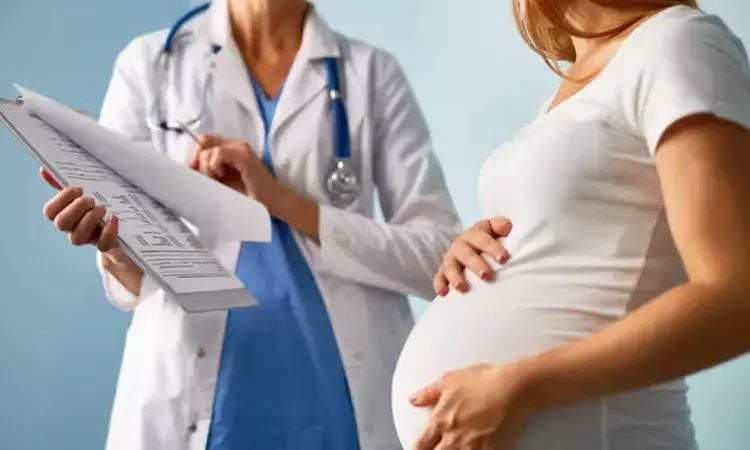- Home
- Medical news & Guidelines
- Anesthesiology
- Cardiology and CTVS
- Critical Care
- Dentistry
- Dermatology
- Diabetes and Endocrinology
- ENT
- Gastroenterology
- Medicine
- Nephrology
- Neurology
- Obstretics-Gynaecology
- Oncology
- Ophthalmology
- Orthopaedics
- Pediatrics-Neonatology
- Psychiatry
- Pulmonology
- Radiology
- Surgery
- Urology
- Laboratory Medicine
- Diet
- Nursing
- Paramedical
- Physiotherapy
- Health news
- Fact Check
- Bone Health Fact Check
- Brain Health Fact Check
- Cancer Related Fact Check
- Child Care Fact Check
- Dental and oral health fact check
- Diabetes and metabolic health fact check
- Diet and Nutrition Fact Check
- Eye and ENT Care Fact Check
- Fitness fact check
- Gut health fact check
- Heart health fact check
- Kidney health fact check
- Medical education fact check
- Men's health fact check
- Respiratory fact check
- Skin and hair care fact check
- Vaccine and Immunization fact check
- Women's health fact check
- AYUSH
- State News
- Andaman and Nicobar Islands
- Andhra Pradesh
- Arunachal Pradesh
- Assam
- Bihar
- Chandigarh
- Chattisgarh
- Dadra and Nagar Haveli
- Daman and Diu
- Delhi
- Goa
- Gujarat
- Haryana
- Himachal Pradesh
- Jammu & Kashmir
- Jharkhand
- Karnataka
- Kerala
- Ladakh
- Lakshadweep
- Madhya Pradesh
- Maharashtra
- Manipur
- Meghalaya
- Mizoram
- Nagaland
- Odisha
- Puducherry
- Punjab
- Rajasthan
- Sikkim
- Tamil Nadu
- Telangana
- Tripura
- Uttar Pradesh
- Uttrakhand
- West Bengal
- Medical Education
- Industry
Study assesses association between Gestational Weight Gain, Preterm Birth, and Metabolic Factors

The increasing rate of preterm birth (PTB) has garnered greater attention from the medical community and society as a whole. Recent study investigated the association between gestational weight gain (GWG) and preterm birth (PTB) according to pre-pregnancy body mass index (pp-BMI) and glycated hemoglobin (HbA1c) levels within the normal range. The researchers conducted a population-based retrospective cohort study involving 23,699 pregnant women.
Results on GWG and PTB Risk
The results showed that 4.7% of the women experienced PTB. The women were classified into three GWG groups: inadequate GWG (21.2%), appropriate GWG (43.2%), and excessive GWG (35.6%). The analysis revealed that women with inadequate GWG had a significantly higher risk of PTB compared to those with appropriate GWG, even after adjusting for confounding factors. In contrast, women with excessive GWG had a reduced risk of PTB.
Variations in PTB Risk based on BMI and HbA1c
Interestingly, the relationship between GWG and PTB varied based on pp-BMI and HbA1c levels. Among women with pp-BMI <18.5 kg/m2 (underweight) and 18.5-24.9 kg/m2 (normal weight), the risk of PTB increased with rising HbA1c levels when GWG was inadequate. For example, underweight women with HbA1c <5.6% and inadequate GWG had a significantly higher PTB risk compared to those with HbA1c 4.6-5.0% and appropriate GWG, and the risk increased further with higher HbA1c levels.
PTB Risk Among Overweight Women
Similar results were observed in the normal weight group - women with HbA1c >4.6% and inadequate GWG had an elevated PTB risk. However, among overweight women (pp-BMI 25-29.9 kg/m2) with inadequate GWG, the significantly increased PTB risk was only observed in the HbA1c 5.6-6.0% subgroup.
Association Between Excessive GWG and PTB Risk
In contrast, the negative association between excessive GWG and reduced PTB risk was seen in some but not all HbA1c subgroups.
Conclusion and Recommendations
In conclusion, the study found a significant association between GWG and PTB risk, but the risk varied based on pp-BMI and HbA1c levels, even when HbA1c was within the normal range. Inadequate GWG conferred a higher PTB risk, especially among underweight and normal weight women with higher HbA1c levels. The findings suggest that close monitoring of GWG, pp-BMI, and HbA1c is crucial to prevent PTB.
Key Points
Here are the 6 key points of the research paper: 1. The study investigated the association between gestational weight gain (GWG) and preterm birth (PTB) based on pre-pregnancy body mass index (pp-BMI) and glycated hemoglobin (HbA1c) levels within the normal range. 2. The results showed that women with inadequate GWG had a significantly higher risk of PTB compared to those with appropriate GWG, even after adjusting for confounding factors. In contrast, women with excessive GWG had a reduced risk of PTB. 3. The relationship between GWG and PTB varied based on pp-BMI and HbA1c levels. Among underweight and normal weight women, the risk of PTB increased with rising HbA1c levels when GWG was inadequate. 4. For overweight women with inadequate GWG, the significantly increased PTB risk was only observed in the HbA1c 5.6-6.0% subgroup. 5. The negative association between excessive GWG and reduced PTB risk was seen in some but not all HbA1c subgroups. 6. The findings suggest that close monitoring of GWG, pp-BMI, and HbA1c is crucial to prevent PTB, as the risk varies based on these factors, even when HbA1c is within the normal range.
Reference –
Xiaoxiao Zhang, Binbin Yin, Kaiqi Wu, Lei Fang & Yan Chen (2024) Association between maternal gestation weight gain and preterm birth according to pre-pregnancy body mass index and HbA1c, Journal of Obstetrics and Gynaecology, 44:1, 2359671, DOI: 10.1080/01443615.2024.2359671
MBBS, MD (Anaesthesiology), FNB (Cardiac Anaesthesiology)
Dr Monish Raut is a practicing Cardiac Anesthesiologist. He completed his MBBS at Government Medical College, Nagpur, and pursued his MD in Anesthesiology at BJ Medical College, Pune. Further specializing in Cardiac Anesthesiology, Dr Raut earned his FNB in Cardiac Anesthesiology from Sir Ganga Ram Hospital, Delhi.
Dr Kamal Kant Kohli-MBBS, DTCD- a chest specialist with more than 30 years of practice and a flair for writing clinical articles, Dr Kamal Kant Kohli joined Medical Dialogues as a Chief Editor of Medical News. Besides writing articles, as an editor, he proofreads and verifies all the medical content published on Medical Dialogues including those coming from journals, studies,medical conferences,guidelines etc. Email: drkohli@medicaldialogues.in. Contact no. 011-43720751


